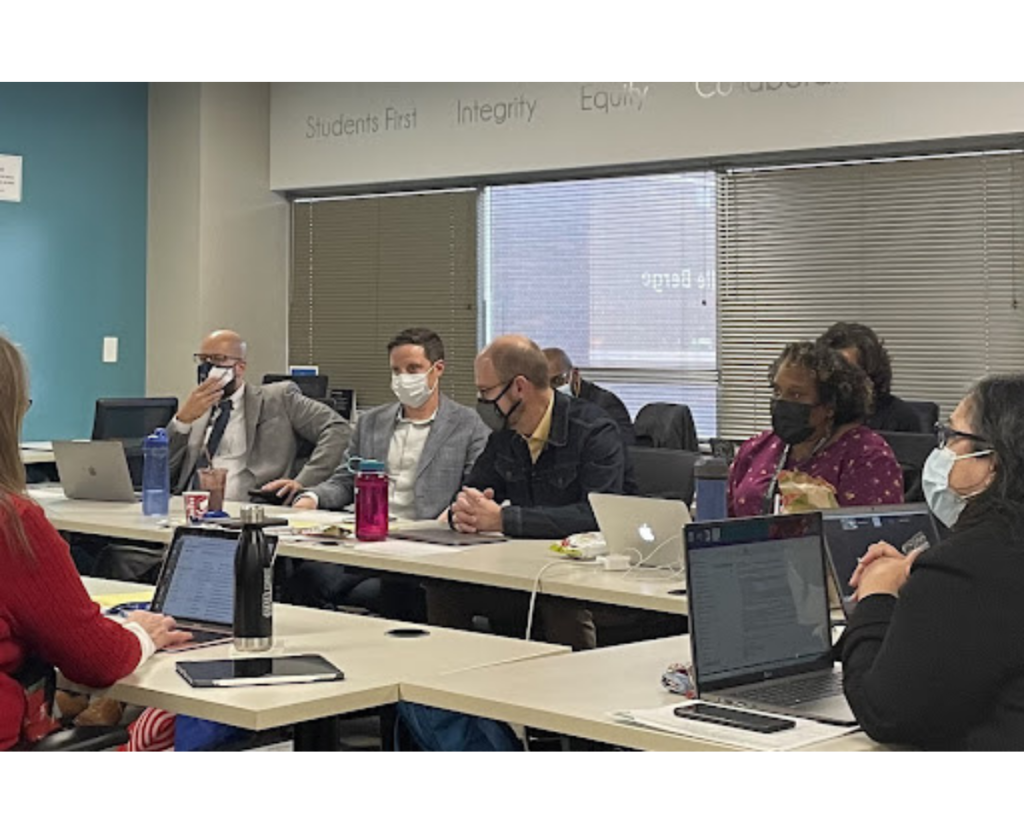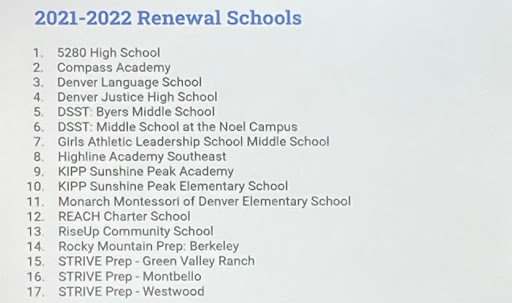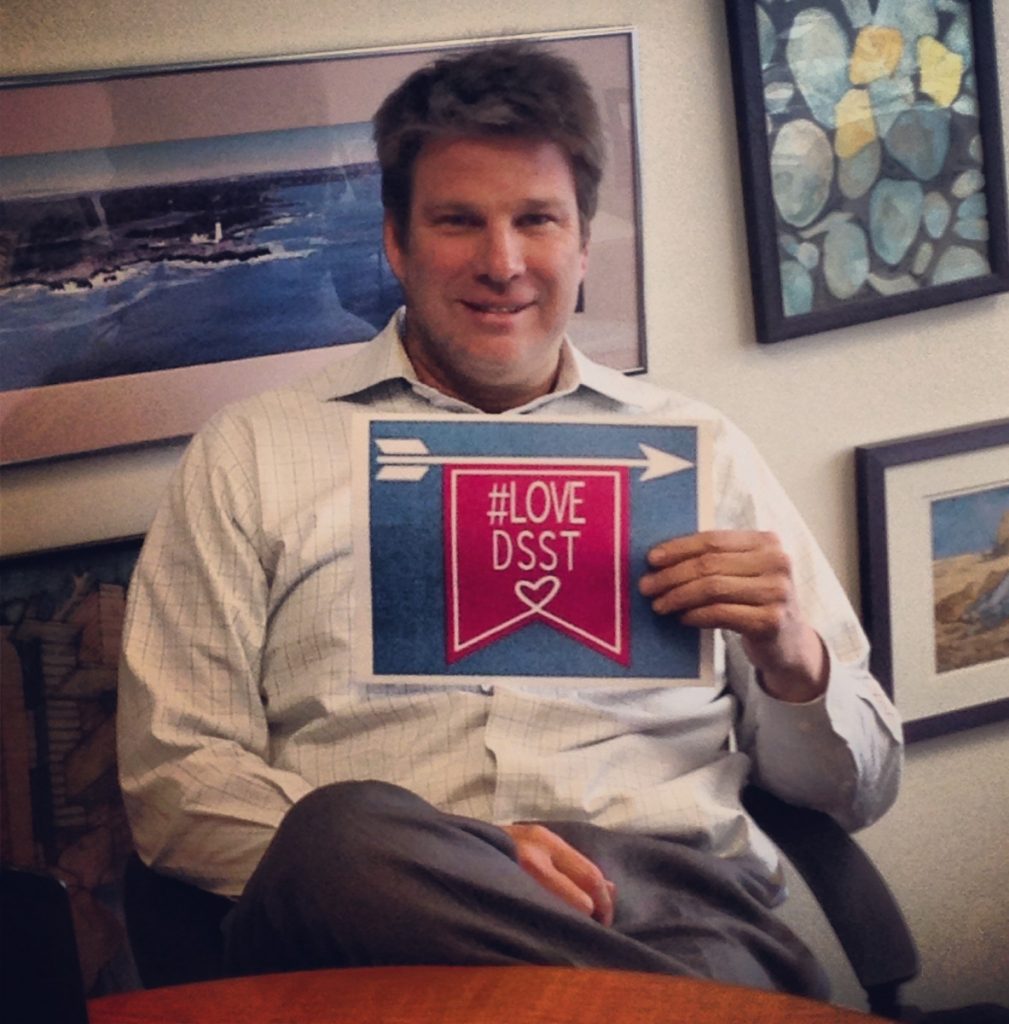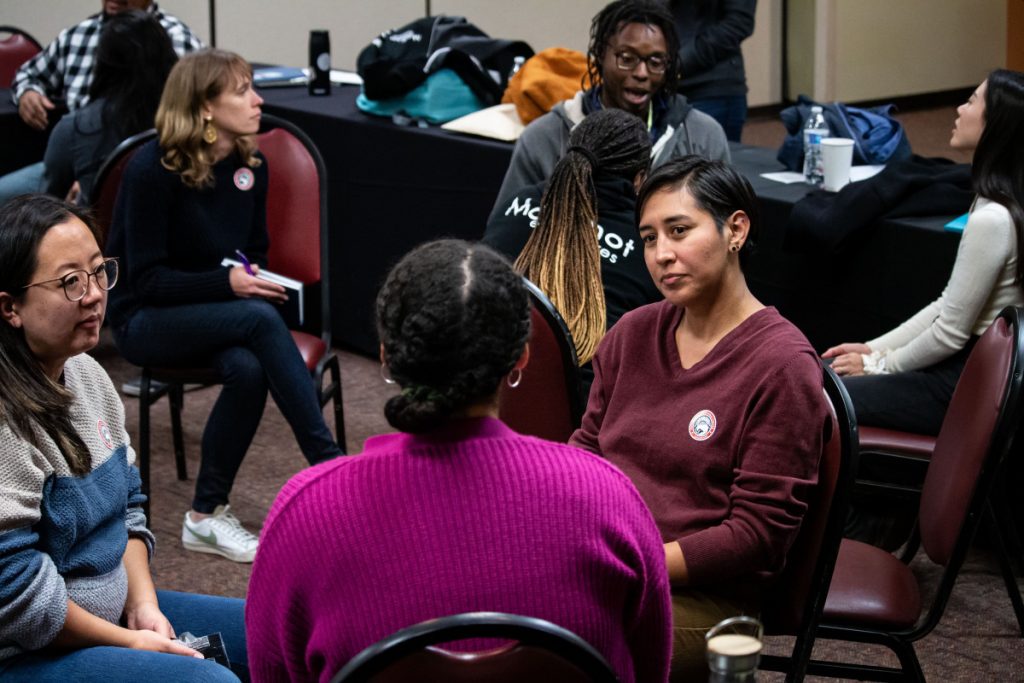Editor’s note: This article has been updated to correct a reporting error that misattributed two quotes about charter school enrollment and renewals to Denver school board member Scott Baldermann. The quotes should have been attributed to Denver Public Schools Associate Chief of Schools Grant Guyer. Boardhawk regrets the error.
Before the Denver Public Schools board votes on 17 charter school renewals next month, Superintendent Alex Marrero will provide the district’s recommendations on Tuesday.
At last Thursday’s school board retreat, though, DPS officials spent roughly an hour with the board laying out guidelines: A list of charter schools up for renewal, academic performance measurements to use for recommended renewals and non-renewals, and a timeline for the board’s upcoming votes.
Some board members made it clear that, in a perfect world, they would like to shorten the length of charter renewals and have an option not to renew a charter if its enrollment slips below a certain, as-yet undefined threshold.
But adding enrollment to non-renewal criteria could potentially run afoul of state regulations.
“This is directly from state statute, and I understand that people may have different perspectives on some of the criteria used for voting, particularly in an era of declining enrollment,” said Grant Guyer, who oversees the district’s charter schools.
Guyer turned out to be correct.
Board members Tay Anderson, Scott Esserman and Xóchitl Gaytán expressed concern that under existing renewal criteria charter schools do not have to meet the same enrollment standards traditional schools may have to meet under the district’s small schools resolution to avoid a shut-down.
Guyer said the Colorado Department of Education does not allow local school boards to make charter schools’ renewal contingent on their enrollment numbers.
“When we look at state law, we look at the specific elements of state law that govern charter renewal criteria. Enrollment is not included in that … and that’s part of what we’re working through,” Guyer said on Thursday.
Guyer also said coming to an agreement on making enrollment a renewal criteria would take a great deal of negotiation with charter schools.
Guyer then clarified that while the law doesn’t say sufficient enrollment numbers are a requirement for charter school renewal, it also doesn’t say they can’t be.
Anderson also expressed concern about how closing a charter school would look because the timeline from decision to closure is so short.
“Hearing that if we choose to not renew a school, that they would be forced to close at the end of the school year. I want to say that bugs me,” Anderson said.
Anderson asked whether anything in state statutes allows the board to give non-renewed charter schools a “grace period” for the sake of the schools’ students, employees and families. He also said that abrupt closure of charters, one of the new board’s early official votes — could make the board look bad to the community.
“I really don’t feel like that’s a fair place to necessarily put this board in,” he said. “(We) could be trying to figure out real, tangible solutions, or at least an exit plan for said school and community, so that parents do have transition time,” Anderson said.
But under the board’s current timeline, a short-notice closure is exactly what could happen.
Charter renewal recommendations are based in part on how the schools performed on the Colorado Department of Education’s color-coded School Performance Framework. That framework, according to the DPS website, seeks to measure “how satisfied students and parents are, how much students have improved their scores on state tests from year to year, and how well the school serves and challenges all of its students.”
If a charter school gets a “red” or “orange” rating (the two lowest), for having what’s deemed weak school quality, it could get nailed with a recommendation for non-renewal.
Board member Scott Baldermann asked if it was possible to limit the charter renewal contracts to two years. This change would only be drastic for high-performing charter schools, which can either receive a two-year extension on a two-year base base (four years total), or a two-year extension on a three or five-year base (five to seven years total).
Still, Baldermann said he was concerned specifically with the “automatic” nature of extensions on charter schools renewal contracts.
“If the primary criteria is the state (School Performance Framework), which is driven by state assessments, what this does is it—in my opinion—drives a school to put a lot of emphasis on raising state assessment scores,” Baldermann said, “knowing if they can get their scores up, they’ll get another two years.”
Guyer said his team is still working through contract negotiations and the terms of their extensions, but did not give a clear answer on whether the board would have that kind of control.
Guyer also said because charter school boards were understanding about the need to push the renewal timeline back last year due to the COVID-19 pandemic, the goal is to make sure this year it’s done before February and ahead of the start of DPS’s School Choice process.
This is what the DPS board’s charter school renewal decision timeline looks like.
- Dec. 14: Marrero shares the renewal recommendations with schools and the board.
- Jan. 6: The DPS portfolio team shares the renewal recommendations at the public board work session.
- Jan. 11: The board holds a public comment session.
- Jan. 13: The board votes on charter school renewal contracts.
- Jan. 14: The first round of School Choice starts.
Here is the list of public charter schools in Denver submitting applications for renewal.





